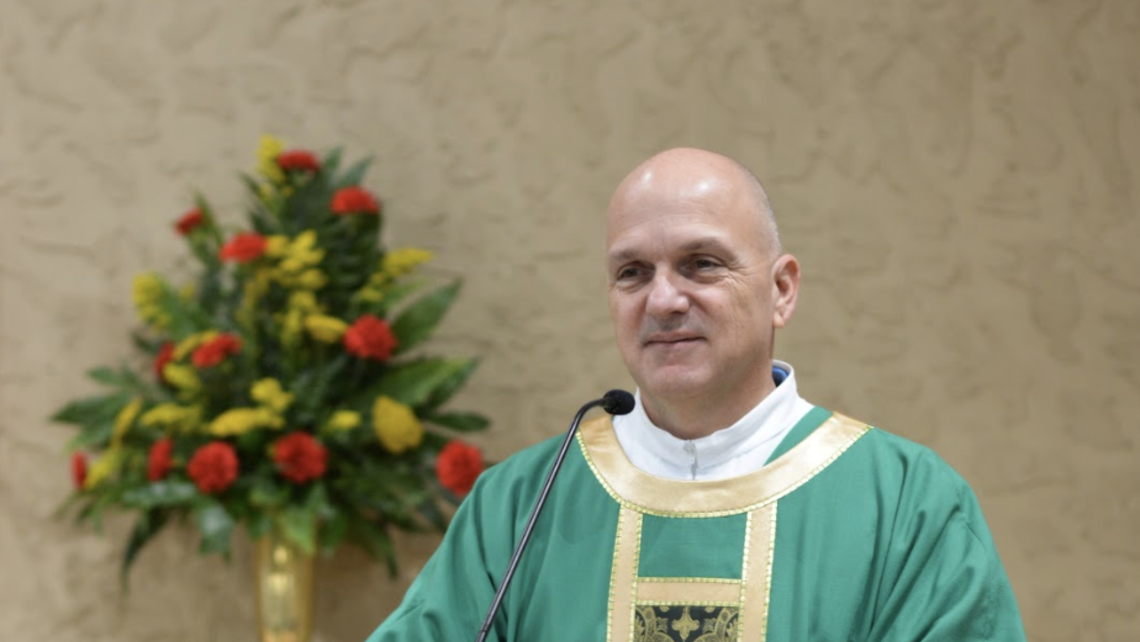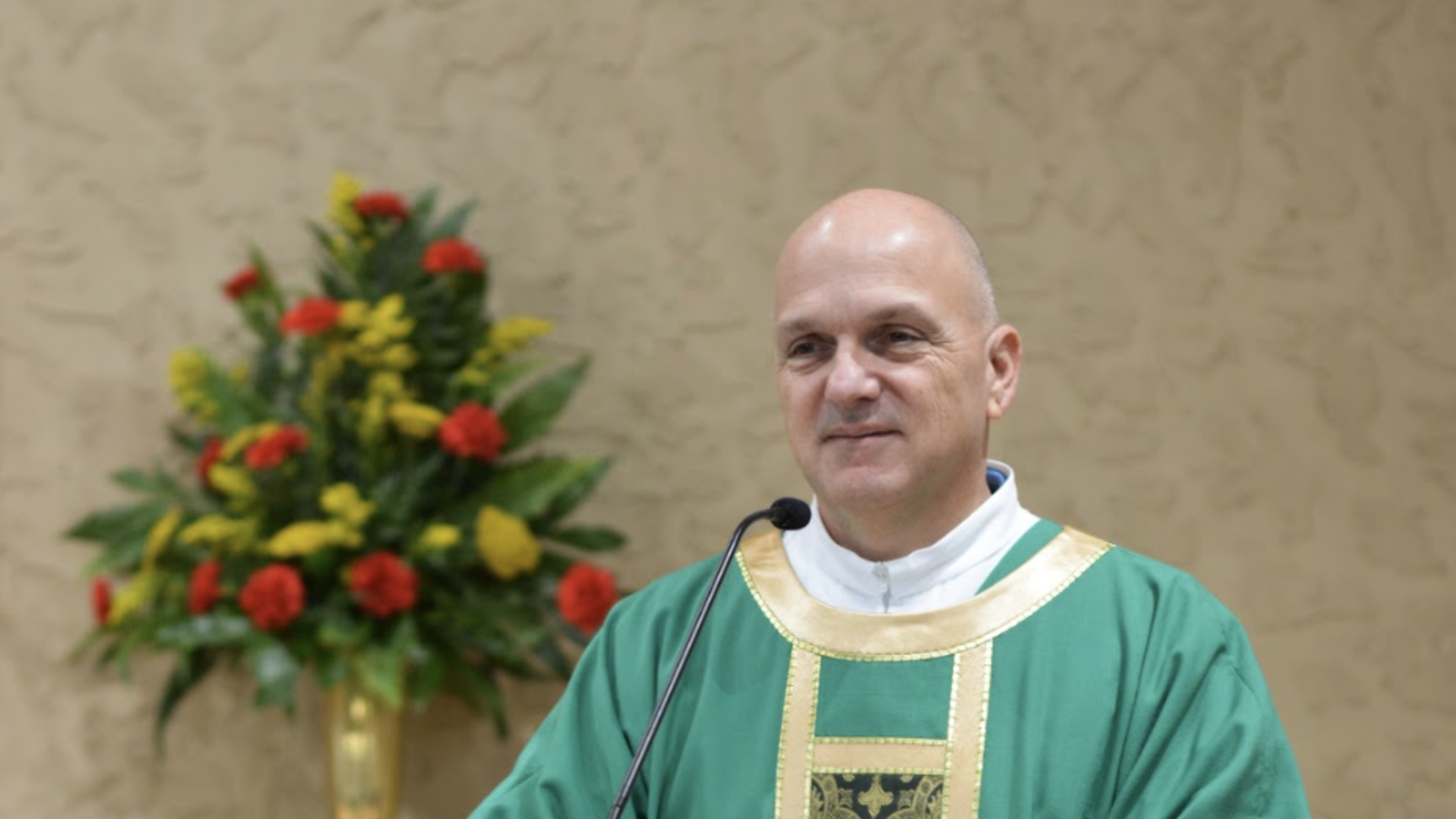
“Today we praise Our Lord Jesus Christ, King of the Universe; who made us His own in Baptism. As we do so we are reminded that belonging to Christ makes claims on us that cannot be ignored. The Gospel message today is very clear: God’s disposition toward us at the time of judgment will be based on our practice of the Works of Mercy. To belong to Christ means that we recognize and serve our Lord as he is found here and now in the faces of the poor.” At Home with the Word
Let’s take a closer look at the scripture readings for today. “Ezekiel speaks to the pain and the hope of so many members of the Church in America today. His message is directed to ‘a people’ that has been taken into exile. Judah had been carried away into Babylon when Ezekiel, who was both a priest and a prophet, presented these words. The sheep, that is, the faithful remnant, would hear these words and recognize that the shepherd had not abandoned them.
As our country faces both growing division and reckonings with racial injustices; we might want to consider how many people in this country have been in some way exiled from their homeland. And, how we can work together to build trust and unity among those with varying backgrounds.
Ezekiel also speaks a good word to a suffering Church. Many whose faith has been shaken by past hurtful events can find hope in the words, “I myself will look after and tend my sheep.” For many Christians, it is this hope in the Lord himself – the Lord who seeks the lost, shepherds rightly, and judges between the sheep and the goats – that keeps them holding on to the Church.
The theme of the End appears in the first sentence of the second reading when St. Paul refers to Christ’s resurrection as the first fruits. St. Paul teaches that all who have received the kingdom, who belong to Christ, will rise from the dead. Christ’s resurrection reveals what awaits all who are found in Christ. This promise of everlasting life compels Christians to remain close to Christ.
All earthly power is made possible through Christ. We rightly want to be good citizens, and we should pay legitimate authorities the respect that their office deserves. At the same time, we must recognize that every authority is subject to Christ.
A great danger of both nationalism and secularism is that they can prevent us from seeing the proper ordering of things. We tend to see earthly, temporal realities as ultimate. Religion can in turn become ‘a means to an end’. That is, in this view, religion is good if it is useful for achieving some political or personal goal. The Solemnity of Christ the King challenges that tendency. It is a feast that demands a re-ordering of priorities, for it reminds us that Christ is the goal of creation.
Just as in the Ezekiel passage, today’s Gospel speaks of the shepherd who separates his own, the sheep, from the goats. Perhaps easily overlooked is that by echoing the prophet, St. Matthew identifies the Son of Man, Jesus of Nazareth, as the Lord of Israel. By pairing this Gospel passage with the passage from Ezekiel, the Church shows how Jesus of Nazareth identifies himself as the God who revealed himself to Moses and the prophets.
As a shepherd, the Lord cares for and watches over his people. The shepherd and the sheep know one another. The people of God show that they know Jesus by practicing the works of mercy.
By being close to sisters and brothers who are suffering, we draw close to Jesus. People in our country are hurting right now. Our friends, family members, and neighbors are suffering. Some people may be wondering how they will pay their bills or where their next meal will come from. We Catholics, as individuals and as parishes, can look for opportunities to minister to the needs of people who are hurting and, by doing so, we will be acknowledging the kingship of Christ.
It is not only as individuals that we can act for the good of others. Caring for the poor requires both individual and collective action. As Christians, we should work toward the good of all God’s people. In addition, the Church as a society in her own right is responsible for serving and lifting-up the marginalized of our society.
The Church has helped create many of the works of mercy; setting up schools, refugee resettlement agencies, adoption and foster care services, hospitals, and more. The Church needs to play a vital role in our world’s recovery from the pandemic. The Catholic Church is one of the great providers of charitable and social services in this country. The Church’s public works are brought to life by the Spirit of Christ.
Religious freedom means, that the Church has the ability to continue to carry out these works. As faithful citizens, Catholics must both promote religious freedom and use that freedom to serve others.” https://www.usccb.org/resources/Christ_the_King_2020_Lectionary_Notes.pdf
“The Corporal Works of Mercy give us a model for how we should treat all others; as if they were Christ in disguise. They respond to the basic needs of humanity as we journey together through this life. Let’s review them:
Feed the hungry – There are many people in this world who go without food. When so much of our food goes to waste, consider how good stewardship practices of our own food habits can benefit others who do not have those same resources.
Give Drink to the thirsty – Many of our brothers and sisters in Christ do not have access to clean water and suffer from the lack of this basic necessity. We should support the efforts of those working towards greater accessibility of this essential resource.
Shelter the homeless – There are many circumstances that could lead to someone becoming a person without a home. Christ encourages us to go out and meet those without homes, affirming their worth and helping them seek a resolution to the challenges they face.
Visit the sick – Those who are sick are often forgotten or avoided. In spite of their illness, these individuals still have much to offer society. Given the current restrictions due to Covid; perhaps sending a greeting card or note of encouragement is the least we can do for now.
Visit the prisoners – People in prison are still people, made in the image and likeness of God. No matter what someone has done, they deserve the opportunity to hear the Word of God and find the Truth of the message of Christ.
Bury the dead – Funerals give us the opportunity to grieve and show others support during difficult times. Through our prayers and actions during these times we show our respect for life, which is always a gift from God, and comfort to those who mourn.
Give alms to the poor – Give of your time and gifts (if you’re able) to organizations that have the ability to provide support and services for those in need.” https://www.usccb.org/beliefs-and-teachings/how-we-teach/new-evangelization/jubilee-of-mercy/the-corporal-works-of-mercy
“It’s often said that you can’t take it with you, and there is a lot of truth to that. All our money, all our honors, all our possessions are temporary. They won’t follow us to heaven, and they can’t help us get in. But there is something we can take with us: our acts of charity. In fact, they are the very things that will open the gates of heaven to us!
Jesus will not be impressed if we have many possessions, and he will not be disappointed if we have just a few. What matters is whether we have let him soften our hearts so that we feed the hungry, forgive those who have sinned against us, and reach out to the lonely. Because his kingdom is not a kingdom of wealth and power; it is a kingdom of humility, love, and service.”
“Jesus, my King, and my Judge teach me to love as you love.” Word Among Us


